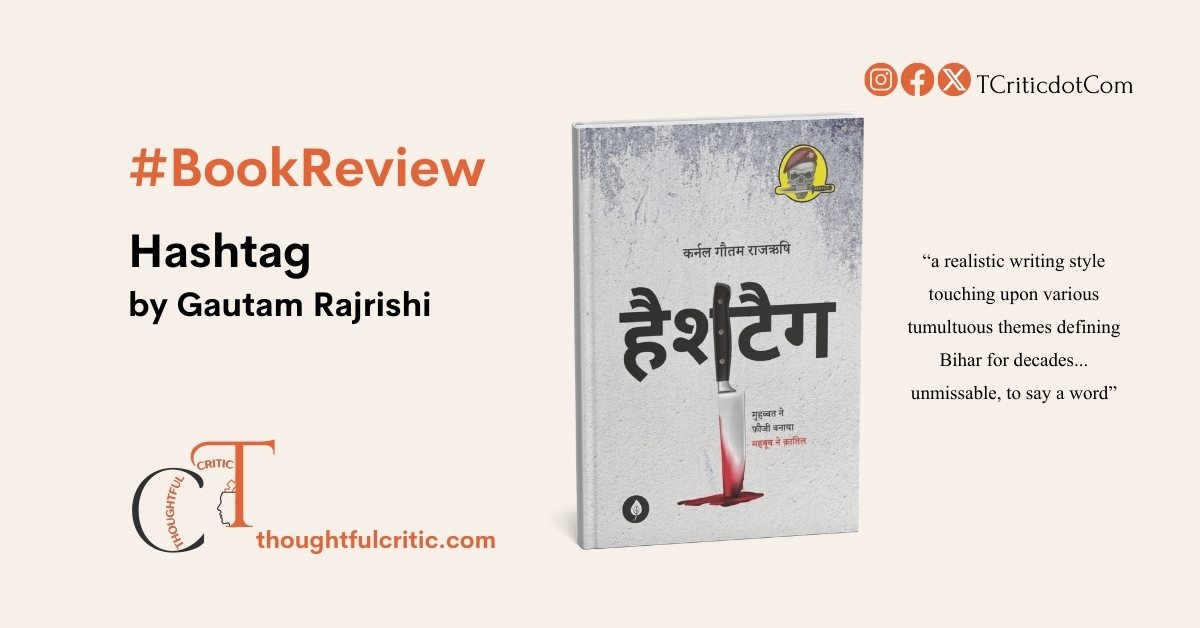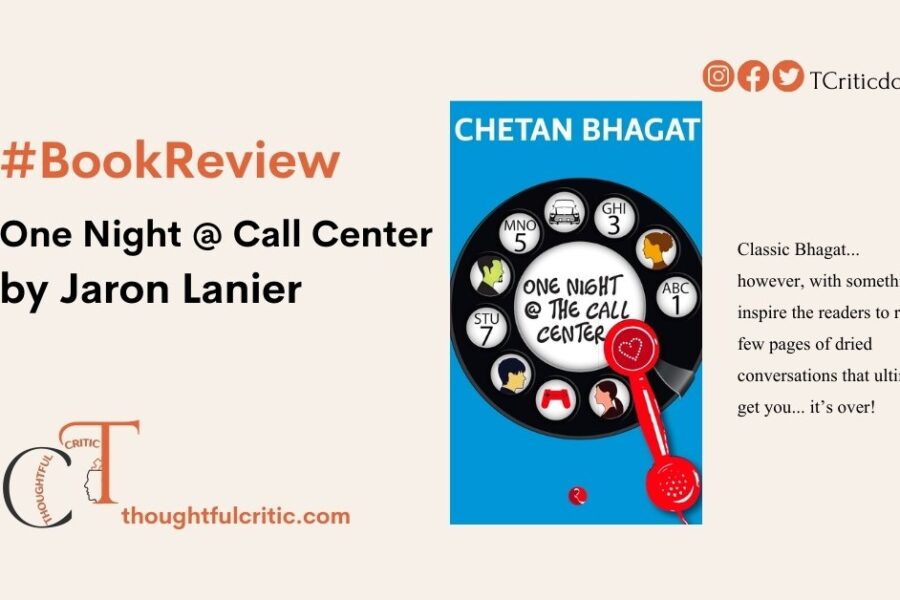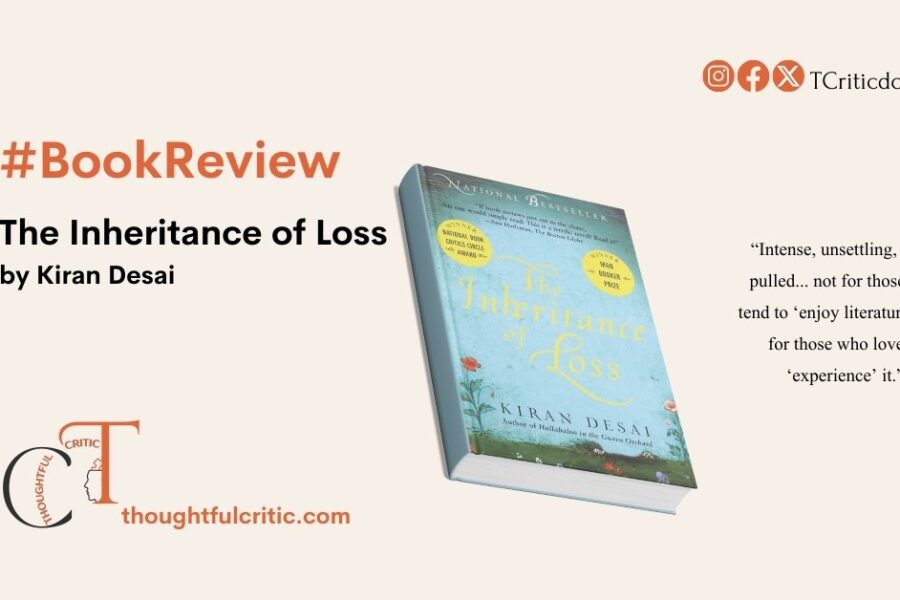Gautam Rajrishi’s Hashtag (हैशटैग) is a profoundly evocative novel that explores the transformative journey of its protagonist, Samar Pratap Singh, from a lovelorn young man to a disciplined soldier, while simultaneously offering a sharp critique of modern relationships and societal expectations. Set against the vibrant yet turbulent backdrop of Bihar, the novel delves into the complexities of unrequited love, ambition, and self-discovery, weaving together a narrative that is as much about personal growth as it is about the socio-political realities of contemporary India. Through the contrasting characters of Samar and Shagun, Gautam crafts a story that is both intimate and universal, capturing the raw emotions of love, rejection, and redemption.
Samar Pratap Singh: From Infatuation to Transformation
Samar’s journey is the heart of Hashtag. At the outset, he is a quintessential romantic, infatuated with Shagun Sinha, a girl whose beauty and charm captivate him. His love for Shagun is all-consuming, bordering on obsession, and it drives him to extraordinary lengths to win her affection. However, Shagun’s indifference and preference for a more glamorous, social-media-driven lifestyle leave Samar heartbroken and disillusioned.
Samar’s transformation begins when he channels his unrequited love into a desire for self-improvement. His decision to join the Indian Military Academy (IMA) in Dehradun marks a turning point in his life. The rigorous training and discipline of military life force Samar to confront his vulnerabilities and redefine his sense of self-worth. Gautam’s portrayal of Samar’s journey through the IMA is authentic and compelling, drawing on his experiences as an Indian Army officer. The physical and mental challenges of military training—early morning drills, gruelling exercises, and the constant pressure to perform—serve as a crucible for Samar’s character.
What makes Samar’s transformation so poignant is its gradual and realistic nature. He does not become a hero overnight; small victories and setbacks mark his growth. His initial struggles with self-doubt and his eventual emergence as a confident, disciplined soldier reflect the novel’s broader theme of resilience. Samar’s journey is not just about overcoming heartbreak but also about finding a higher purpose. His love for Shagun, once a source of pain, catalyses his transformation, symbolizing the redemptive power of ambition and self-discipline.
Shagun Sinha: The Modern, Social-Media Savvy Girl
Shagun Sinha, in contrast to Samar, represents the modern, social-media-driven generation. She is portrayed as a confident, self-assured young woman who thrives on attention and validation from her online followers. Her beauty and charm make her the centre of attention, but her relationships are superficial, driven more by the desire for social media clout than genuine emotional connection.
Shagun’s treatment of Samar is emblematic of her character. She enjoys being courted by him, not because she has genuine feelings for him, but because it boosts her ego and enhances her social media presence. A calculated indifference marks her interactions with Samar as she strings him along without ever committing to a relationship. This dynamic is captured in Gautam’s nuanced portrayal of Shagun, who is neither a villain nor a victim but a product of her environment.
Shagun’s character critiques modern relationships’ shallow, performative nature, where love is often reduced to likes, comments, and followers. Her inability to reciprocate Samar’s feelings highlights the emotional disconnect that can arise in a world dominated by social media. Yet, Gautam does not judge Shagun harshly; instead, he presents her as a flawed, relatable character, caught between her desire for independence and the societal pressures to conform to traditional expectations.
The Duality of Love: Inspiration and Devastation
The relationship between Samar and Shagun is central to the novel’s exploration of love’s duality. For Samar, love is a source of both inspiration and devastation. His infatuation with Shagun drives him to achieve greatness, pushing him to join the IMA and transform himself into a disciplined soldier. Yet, his unrequited love also leaves him emotionally scarred, forcing him to confront the harsh realities of rejection and heartbreak.
Gautam’s use of Shayari and poetic language adds depth to Samar’s emotional journey. The lyrical beauty of his verses captures the intensity of Samar’s feelings, from the euphoria of first love to the despair of unfulfilled longing. This poetic realism elevates the novel, making it a story of love and a meditation on the human condition.
Shagun, on the other hand, views love as a transactional experience. Her relationships are driven by the desire for attention and validation rather than genuine emotional connection. This contrast between Samar’s idealism and Shagun’s pragmatism underscores the novel’s exploration of love’s complexities. Gautam suggests that love, in its purest form, can be both a source of inspiration and a catalyst for destruction, depending on how it is experienced and expressed.
Socio-Political Backdrop: Bihar’s Realities
The novel’s setting in Bihar adds a layer of authenticity and depth to the narrative. Gautam’s vivid descriptions of the region’s socio-political landscape—its caste politics, educational challenges, and cultural vibrancy—create a rich tapestry against which Samar’s story unfolds. Including real-life events, such as Bihar’s legislative elections and the Indian Army’s surgical strikes, grounds the story in reality, giving it a quasi-documentary feel.
Bihar’s complexities mirror Samar’s internal struggles. Just as the region grapples with issues of identity and progress, Samar must navigate the challenges of love, ambition, and self-discovery. The novel’s exploration of these themes is intimate and universal, offering readers a glimpse into the struggles of contemporary Indian youth.
Conclusion: A Tale of Love, Ambition, and Redemption
Ultimately, we can all agree (obviously, those who have read it) that Hashtag is a deeply moving novel exploring love and ambition’s transformative power. Through the contrasting characters of Samar and Shagun, Gautam Rajrishi offers a nuanced portrayal of modern relationships, capturing the emotional highs and lows of unrequited love. Samar’s journey from a lovelorn young man to a disciplined soldier is inspiring and relatable. At the same time, Shagun’s character critiques the shallow, performative nature of modern romance.
Gautam’s use of Shayari and poetic language adds a layer of beauty and introspection to the narrative, making Hashtag a story and a literary experience. The novel’s exploration of Bihar’s socio-political realities further enriches the story, grounding it in the complexities of contemporary India.
Ultimately, Hashtag is a testament to the resilience of the human spirit. It is a story of love, loss, and redemption, told with sensitivity and depth. Gautam Rajrishi’s evocative writing and richly drawn characters make this a novel that lingers in the mind long after turning the last page. Hashtag is a must-read for readers seeking a story that resonates with the complexities of the human heart.
Get a copy from Amazon India – click here.
Review by Simran for Thoughtful Critic
Hashtag by Gautam Rajrishi, a book review from characters' perspectives
-
Thoughtful Critic's Rating
Summary
A must-read Hindi novel for contemporary literature readers that delivers on various fronts. The storyline, an engaging plot, and a realistic writing style touching upon various tumultuous themes defining Bihar for decades… unmissable, to say a word!




